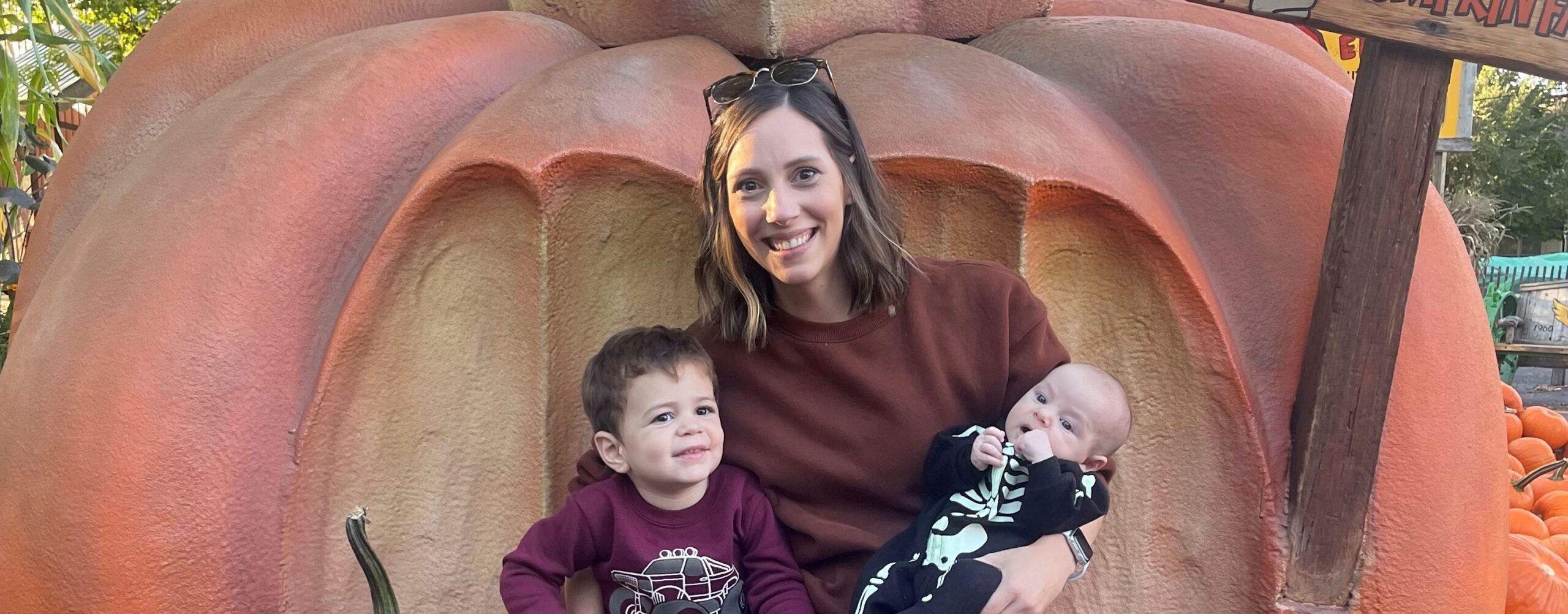Bringing a second child into the family can be a time of immense joy, but for many mothers, it can also stir up feelings of guilt. The balancing act of caring for two children often leaves moms feeling like they’re not giving enough attention to their firstborn or that they’re stretched too thin to give their best to either child. This feeling is commonly referred to as “mom guilt” — an overwhelming sense of inadequacy and self-doubt that can cast a shadow on what should be a joyous time.
At Ace Counseling, we recognize the emotional complexities that come with growing your family. In this blog, we’ll explore the roots of mom guilt and offer strategies to help you navigate this emotional terrain with compassion and self-care.
1. Understanding the Source of “Mom Guilt”
The guilt many mothers feel after the birth of a second child often stems from two primary concerns:
Feeling like you’re taking away from your firstborn’s time, attention, or bond.
Worrying that you’re not able to devote the same energy and focus to the new baby as you did with your first.
These worries are normal, and it’s important to recognize that this guilt comes from a place of love and deep care for your children. Acknowledging the source of your feelings is the first step toward managing them.
Mental Health Tip: Remind yourself that guilt is a natural reaction to change, not a reflection of your ability as a mother. Normalize these feelings by talking to other moms who have gone through similar transitions.
2. Reframe “Quality Time” with Each Child
A common struggle for moms of two is the belief that they can’t give both children the same level of attention. The reality is that your time is now divided differently, but that doesn’t mean you’re not giving your children what they need. Instead of focusing on the quantity of time, shift your focus to quality.
Mental Health Tip: Set small, realistic goals for one-on-one time with each child, even if it’s just for a few minutes each day. Remember that brief moments of full, undistracted attention can go a long way in making your children feel loved and valued.
3. Let Go of the “Perfect Parent” Myth
One of the driving forces behind mom guilt is the unrealistic expectation that you must be a “perfect” parent who can meet every need without missing a beat. This pressure is not only unattainable but also harmful to your well-being. It’s important to give yourself grace and recognize that perfection is neither possible nor necessary for you to be a great mother.
Mental Health Tip: Practice self-compassion by recognizing your efforts instead of fixating on what you feel you haven’t done. Acknowledge that you are human, and parenting is a journey that involves constant learning and adjustment.
4. Build a Support Network
Mom guilt can intensify when you feel isolated in your struggles. Reaching out to other mothers, friends, or family members who understand what you’re going through can provide much-needed relief. Sharing your experiences with others not only normalizes your feelings but also gives you a space to release some of the emotional weight you’re carrying.
Mental Health Tip: Consider joining a support group for moms or talking to a counselor. At Ace Counseling, we offer family and individual counseling to help parents navigate major life transitions like expanding your family.
5. Be Honest with Your Firstborn
Many moms feel guilt about how their firstborn will react to the new sibling and how their relationship might change. It’s common to worry that the first child will feel left out or jealous. While some of these emotions may arise, they are part of a normal adjustment process. The key is to be honest and open with your firstborn about the changes happening in the family.
Mental Health Tip: Have age-appropriate conversations with your older child about their feelings. Let them know it’s okay to have mixed emotions about the baby’s arrival and that your love for them hasn’t changed. This kind of open dialogue can help ease their fears and yours.
6. Practice Mindfulness and Self-Care
When overwhelmed by guilt, it’s easy to get caught in a cycle of negative thinking. Practicing mindfulness can help you stay grounded in the present moment and avoid spiraling into self-criticism. Simple mindfulness techniques, like deep breathing, meditation, or a brief moment of quiet reflection, can help reset your mindset and reduce anxiety.
Mental Health Tip: Schedule regular self-care practices, even if they are brief. Whether it’s a short walk, a relaxing bath, or a few minutes of journaling, taking care of yourself is essential to being able to care for your children.
7. Know That Relationships Evolve
The birth of a second child naturally changes the family dynamic, and with that comes a shift in relationships. While it may feel like your bond with your first child is changing, it’s important to recognize that relationships evolve over time. Your love and connection with both children will deepen and grow in new ways.
Mental Health Tip: Instead of focusing on what you feel has been “lost,” celebrate the new opportunities for connection with both children. Over time, your first child will likely develop a special bond with their sibling, and you will find new ways to connect with each child individually.
8. Challenge the Inner Critic
The voice of mom guilt often comes from an internal critic that tells you you’re not doing enough. This voice can be loud and persistent, making it difficult to appreciate your efforts. One way to challenge this inner critic is to actively replace negative thoughts with positive affirmations.
Mental Health Tip: When guilt arises, ask yourself, “What would I say to a friend in this situation?” Often, we are much kinder and more understanding to others than we are to ourselves. Practice giving yourself the same compassion and encouragement you’d offer someone else.
Conclusion
The arrival of a second child brings immense joy, but it can also come with emotional challenges, especially when it comes to managing mom guilt. Remember that feeling guilty doesn’t mean you’re failing as a mother—it means you care deeply. By practicing self-compassion, setting realistic expectations, and focusing on quality time, you can release some of the guilt and embrace this new chapter with a sense of peace. If you find that the guilt feels overwhelming or persistent, don’t hesitate to seek support. Ace Counseling is here to help you navigate this transition with empathy and care.



